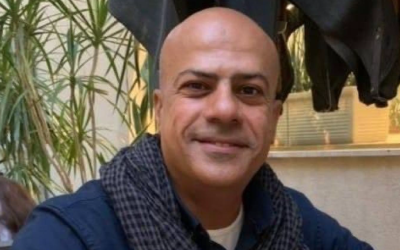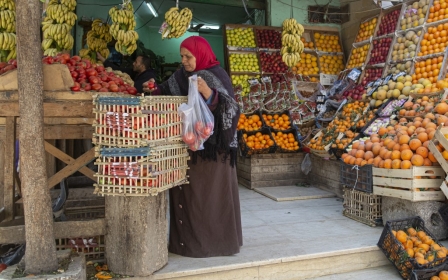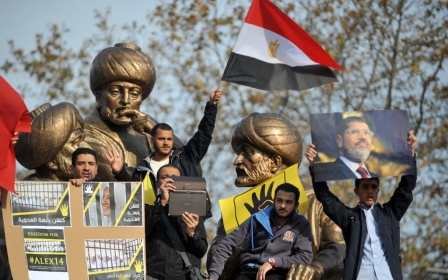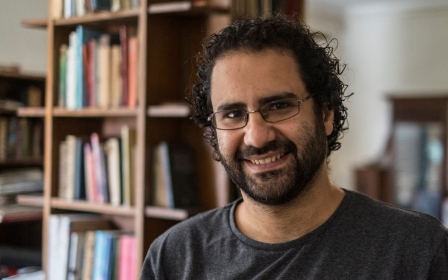Egypt: Authorities accused of covering up 'suspicious death' of economist
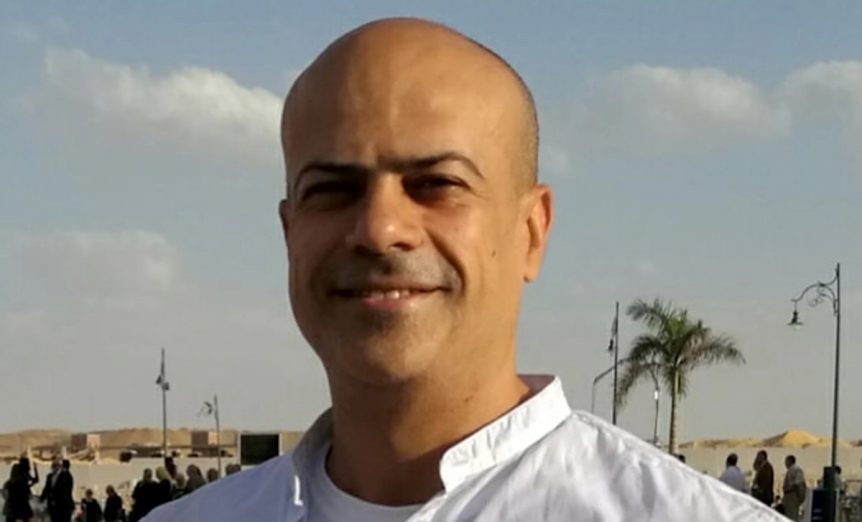
The death of economist Ayman Hadhoud has been described as "suspicious" by a group of Egyptian and international rights groups, who reject the Public Prosecution's conclusion that he had died of natural causes.
Hadhoud, a senior economic adviser to Egypt's liberal Reform and Development Party, was arrested on 5 February and went missing. Then, on 9 April, his family was asked to collect his dead body from the Abbasiya Mental Health Hospital in Cairo.
'Evidence indicates criminal violations behind Ayman’s death'
- Egyptian rights groups
After learning about Hadhoud's presence in the hospital, his family said they suspected he had been killed, and feared a cover-up by the interior ministry was being planned.
A member of the family told Middle East Eye that he saw Hadhoud's body with signs of beatings and torture, but he was then forced to delete the images from his phone.
Amnesty International on Thursday said it saw leaked photos of his corpse, which "strongly suggests that Ayman Hadhoud was tortured or otherwise ill-treated before his death".
On Monday, the Public Prosecution insisted that Hadhoud had died on 5 March of "hypotensive shock and cardiac arrest," following its investigation of the case and an autopsy of the body.
"The prosecution examined his body and found no injuries, and called in a health inspector to conduct an external examination... which confirmed no criminal suspicion in his death, and police investigations confirmed no criminal suspicion in his death," a statement by the Public Prosecution said.
This conclusion, however, was rejected by the family and human rights organisations, who accused the National Security Agency (NSA), Public Prosecution, and the Abbasiya Mental Health Hospital of concealing the truth behind Hadhoud's death and detention.
"Evidence indicates criminal violations behind Ayman's death, as he was alive on the evening of 6 February when he was arrested on charges of alleged theft," nine rights groups said in a report.
Contradictory official statements
According to the rights groups' report, which matches information revealed by MEE earlier this week, Hadhoud's family had lost contact with him since 5 February 2022, when he last met with his brother Omar.
An NSA officer named Yassin Mustafa summoned Hadhoud's brother, Adel, to the Amiriya Police Station on 8 February and informed him that he was in the custody of the NSA, without revealing his location. The officer asked Adel about his brother's workplace, studies and activities.
Hadhoud had expressed views against security services prior to his arrest, and believed that they intervened in politics in favour of the wealthy, the report said.
"He may have expressed this opinion in writing on his laptop or mobile phone, thus indicating potential retaliation on the part of the National Security officers who unlawfully detained and interrogated him," the report added, citing the family as saying that they have yet to retrieve Hadhoud's mobile phone and laptop, which the authorities denied seizing.
After receiving information from the NSA officer, Hadhoud's family did not immediately file a report about his enforced disappearance, hoping to rely on unofficial mediation to release him.
Hadhoud was an adviser to Mohamed Sadat, a member of his party and also of the National Council for Human Rights and nephew of the late president Anwar Sadat. The family expressed fears that he would be subjected to harm, given that he suffered from psychological distress at the time.
According to the statement of the Public Prosecution and unofficial information received by the family at the time, Hadhoud was admitted to hospital on 14 February, which indicates that he had been held by the NSA for seven days before that.
When the family tried to visit him in hospital, they were not allowed to see him, although the hospital director told one of his friends that he was in good health, as of 23 February.
He explained that Hadhoud was held there under the authority of the forensic medicine department at the request of security services. A permit from security agencies or the public prosecutor was required to visit him, the director said, adding that Hadhoud had been charged with attempted car theft.
But the Public Prosecution, when contacted by the family, said he was registered in connection with a criminal case; the hospital consistently denied that he was being held there at all.
At the beginning of April, a friend of Hadhoud was able to find out that he had died in the Abbasiya Mental Health Hospital about a month earlier, and that there was no information regarding the whereabouts of his body.
Hadhoud's friends and colleagues began announcing that he had been forcibly disappeared and had been in the custody of the National Security Agency. His family returned to Mohamed Sadat, and on 7 April 2022 submitted a complaint regarding Hadhoud's detention under the NSA to the president of the National Council for Human Rights, Mushira Khattab.
The family's efforts led to a shift in NSA tactics regarding the concealment of Hadhoud's body.
The rights groups added, as confirmed by MEE sources, that the NSA "attempted to erase any evidence of their wrongdoing by preparing for Ayman's burial in a charity cemetery without notifying his relatives".
When the family requested a permit to bury Hadhoud a day after his body was found, they were surprised that another permit had been issued previously to bury him in charity graves as an unidentified person.
Mental illness no justification
The rights groups pointed out that Hadhoud's mental health condition "is irrelevant to any of the violations inflicted upon him and culminating in his death".
"Even if it is true that he was delirious at the time of his arrest, this does not justify his disappearance from 5 February to 14 February in National Security headquarters, whether in the Amiriya Police Station or elsewhere, without the notification of his family," the report said.
"If Ayman were indeed suffering from mental illness or other psychological distress, this doubles the responsibility of the party that detained him."
'If Ayman were indeed suffering from mental illness or other psychological distress, this doubles the responsibility of the party that detained him'
- Egyptian rights groups
The groups said the disappearance was all the more suspicious as the public prosecutor failed to disclose his whereabouts while it summoned his family for interrogation and also ordered Ayman's transfer to the mental health hospital.
"What happened during this period remains unknown to any party other than those who detained Ayman without justification from the law. Accordingly, this party must be held accountable, and cannot be absolved of accountability on the basis of the deceased’s mental health."
The groups also described the holding of Hadhoud's corpse in the hospital morgue for more than a month as "highly unusual".
"The fact that this was done indicates an intent for Ayman's body to decompose to an extent which would render it difficult, if not impossible, for the limited forensic capabilities in Egypt to determine his cause of death."
The organisations behind the report are: the Association for Freedom of Thought and Expression, the Egyptian Initiative for Personal Rights, El Nadeem Centre, the Cairo Institute for Human Rights Studies, the Egyptian Commission for Rights and Freedoms, the Egyptian Front for Human Rights,the Committee for Justice, Masaar, Technology and Law Community, and the Freedom Initiative.
Middle East Eye propose une couverture et une analyse indépendantes et incomparables du Moyen-Orient, de l’Afrique du Nord et d’autres régions du monde. Pour en savoir plus sur la reprise de ce contenu et les frais qui s’appliquent, veuillez remplir ce formulaire [en anglais]. Pour en savoir plus sur MEE, cliquez ici [en anglais].


